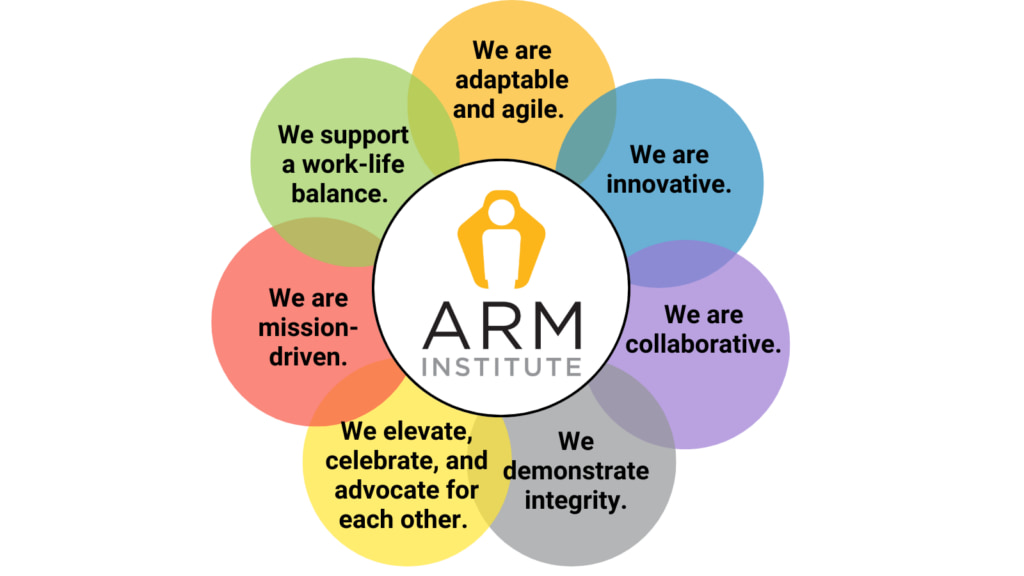The ARM Institute has consistently been ranked among the best places to work in Pittsburgh by the Pittsburgh Business Times. We believe diversity is essential to our organization’s growth and success and strive to create an inclusive, accepting culture and welcome individuals of all backgrounds to join our innovative organization. We are a proud equal opportunity employer.
ARM Institute Core Values

